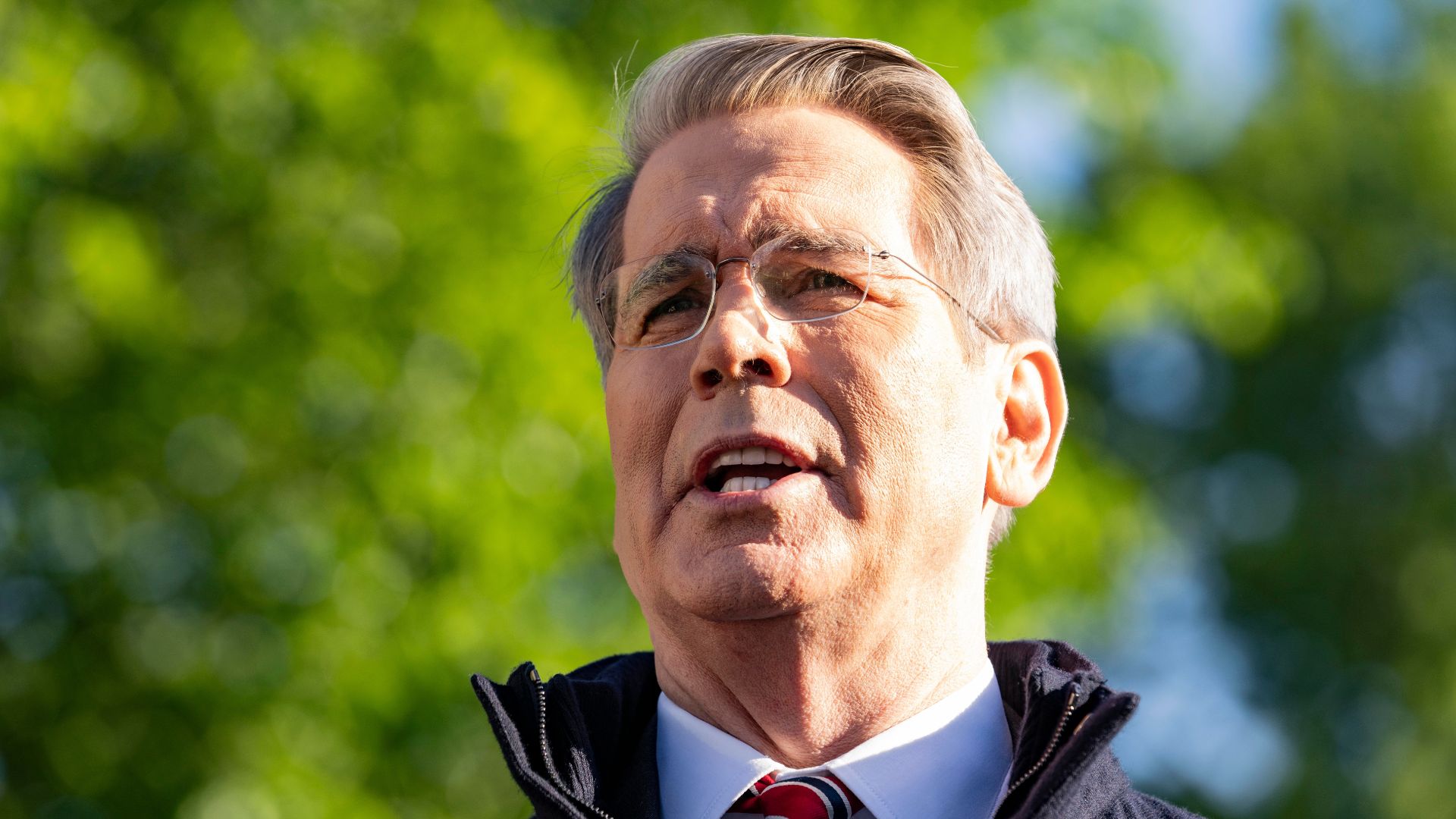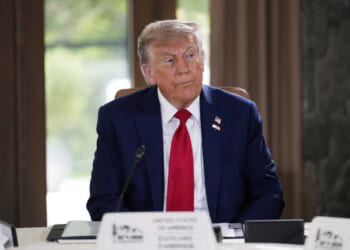
President Donald Trump has finalized a significant trade agreement with the European Union, further advancing his administration’s strategy to recalibrate global trade relationships and prioritize American economic interests.
The deal, which includes expanded EU purchases of U.S. goods, marks a major win for the Trump administration and comes as U.S. tariff revenues reach historic levels.
The Department of the Treasury reported that the United States collected nearly $28 billion in customs duties during the month of July, based on data through July 25.
Trump’s Sovereign Wealth Fund: What Could It Mean For Your Money?
This figure surpasses the previous monthly record of $27 billion set in June, with several days of reporting still pending for July.
In total, the U.S. has already collected approximately $150 billion in tariff revenue for the month.
These developments come as the administration’s broader economic strategy begins to show measurable results.
Predictions from financial analysts and media outlets regarding negative fallout from tariffs have not materialized.
This Could Be the Most Important Video Gun Owners Watch All Year
Instead, revenue from duties imposed on imported goods has climbed sharply, fueling discussions within the administration about using the funds to pay down national debt and potentially offer rebates to American taxpayers.
Here’s 42 seconds of the MSM eating crow on Trump’s EU trade deal.
Enjoy! pic.twitter.com/0J0UzUbviW
— Charlie Kirk (@charliekirk11) July 29, 2025
Secretary of the Treasury Scott Bessent, who was appointed earlier this year, has played a key role in implementing and negotiating the administration’s economic initiatives.
Bessent, a former hedge fund manager, has been praised for his experience in global finance and has recently represented the United States in trade-related meetings with foreign governments, including China.
During a press event, Bessent was asked by a reporter, “You’ve been described as a global macro veteran, and you’ve run a hedge fund. In this moment, where would you put your money?”
Bessent responded, “United States of America.”
🚨 JUST IN: Treasury Secretary Scott Bessent gave a glorious 4-word answer when somebody asked him…
“You’ve been described as a global macro veteran and you’ve run a hedge fund. In this moment, where would you put your money?”
BESSENT: “United States of America.”
🇺🇸🔥 pic.twitter.com/e5oWfq5ufL
— Eric Daugherty (@EricLDaugh) July 29, 2025
That comment was widely circulated and echoed the administration’s stance that current trade and economic policies are aimed at driving capital back into domestic markets.
Officials within the Trump administration have emphasized that tariffs serve multiple strategic purposes, including increasing revenue, strengthening America’s negotiating position, and encouraging companies to relocate production to the United States.
By raising the cost of importing foreign-made goods, the administration hopes to make domestic manufacturing more attractive.
Officials argue that this shift would not only increase job creation in the U.S. but also grow the tax base and reinvigorate key industrial sectors.
Meanwhile, efforts are underway to initiate new negotiations with China.
The Trump administration has signaled that trade discussions with Beijing will be a top priority in the coming weeks, with Bessent leading preparatory discussions.
The administration’s approach to trade has also garnered attention outside traditional conservative circles.
Commentator Bill Maher recently acknowledged on-air that he had misjudged President Trump’s policies in areas such as tariffs, prompting a public response from the President.
.@billmaher admits he was wrong on tariffs: “Look, the stock market is at record highs … I don’t see a country in a depression at all … I would have thought, and I gotta own it, that these tariffs were going to f–king sink this economy by this time, and they didn’t.” pic.twitter.com/HbRThJyfKE
— Rapid Response 47 (@RapidResponse47) July 28, 2025
With the EU agreement secured and China talks on the horizon, President Trump’s trade agenda is poised to remain a central focus of the administration’s economic strategy.
Treasury officials have not released additional details about the China negotiations but confirmed that discussions are in progress.
As tariff revenues climb and new trade agreements are reached, administration officials continue to stress that their policies are designed to strengthen the U.S. economy and reverse longstanding trade imbalances.

![Sec. Bessent Delivers a 'Glorious' 4-Word Mic Drop In Wake of Historic EU Trade Deal [WATCH]](https://www.right2024.com/wp-content/uploads/2025/07/Sec-Bessent-Delivers-a-Glorious-4-Word-Mic-Drop-In-Wake-750x375.jpg)
![Former Bravo Star Charged After Violent Assault Using a Rock-Filled Sock in Tennessee Walmart [WATCH]](https://www.right2024.com/wp-content/uploads/2025/07/Former-Bravo-Star-Charged-After-Violent-Assault-Using-a-Rock-Filled-350x250.jpg)




![Karoline Leavitt Levels CNN's Kaitlan Collins and Other Legacy Media Reporters [WATCH]](https://www.right2024.com/wp-content/uploads/2025/07/Karoline-Leavitt-Levels-CNNs-Kaitlan-Collins-and-Other-Legacy-Media-350x250.jpg)
![Man Arrested After Screaming at Senators During Big Beautiful Bill Debate [WATCH]](https://www.right2024.com/wp-content/uploads/2025/06/Man-Arrested-After-Screaming-at-Senators-During-Big-Beautiful-Bill-350x250.jpg)
![Illegal Alien Walked Free After Decapitating Woman, Abusing Corpse for Weeks [WATCH]](https://www.right2024.com/wp-content/uploads/2025/07/1753013138_Illegal-Alien-Walked-Free-After-Decapitating-Woman-Abusing-Corpse-for-350x250.jpg)







